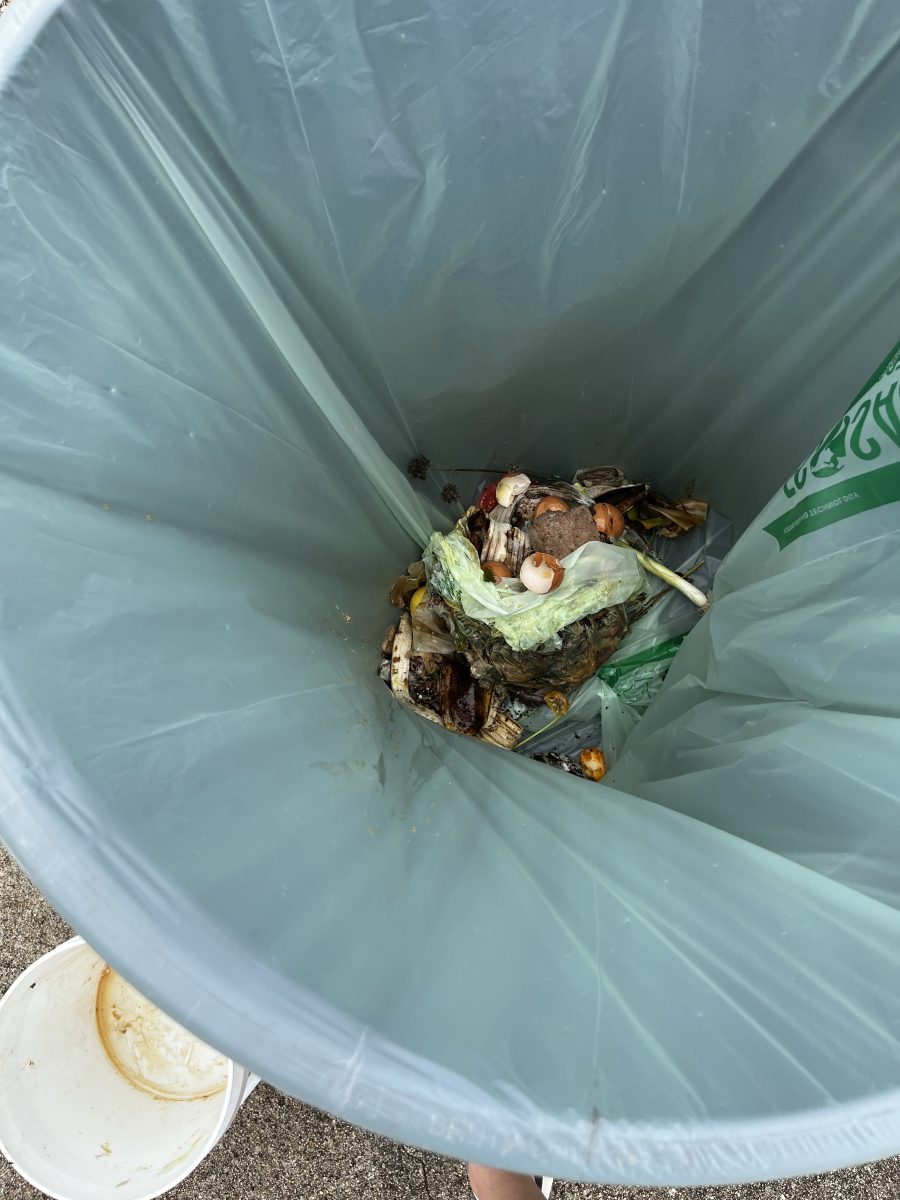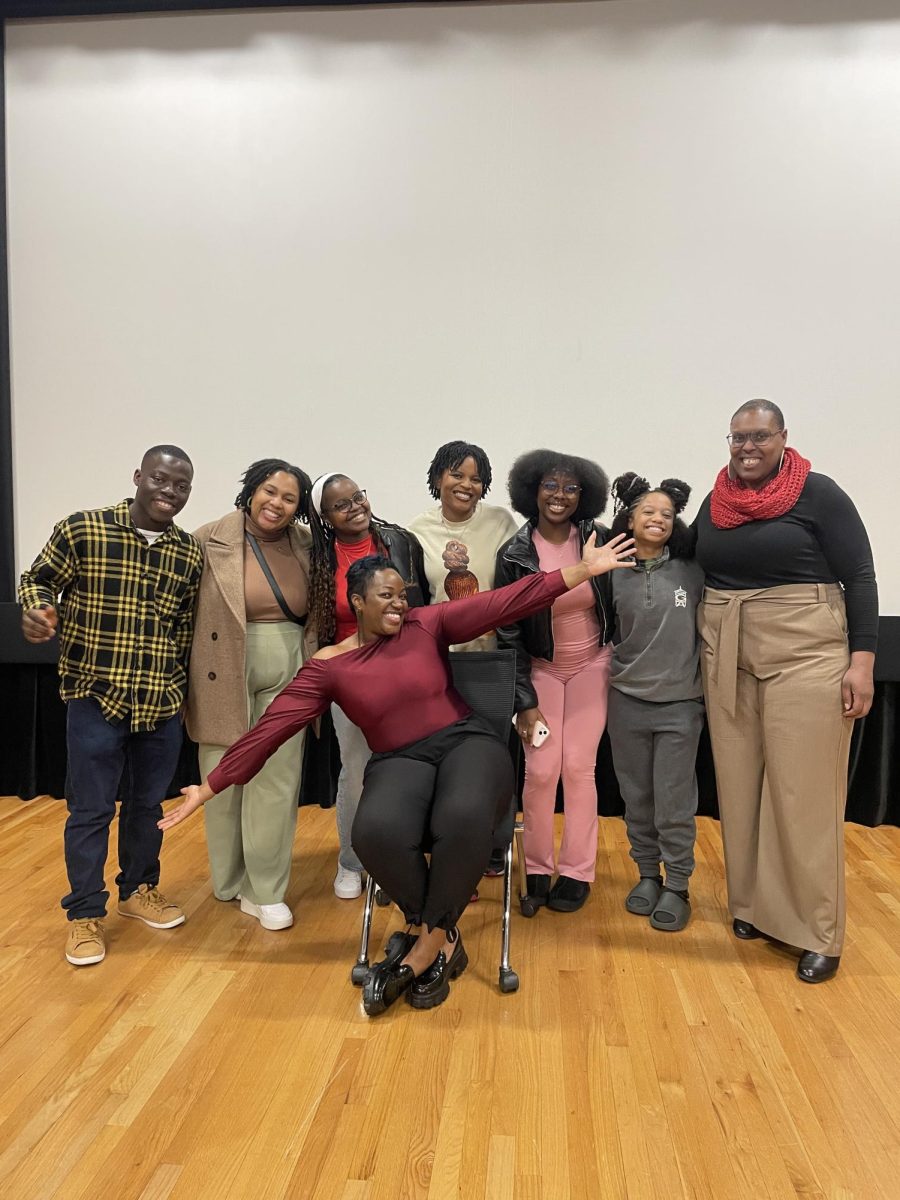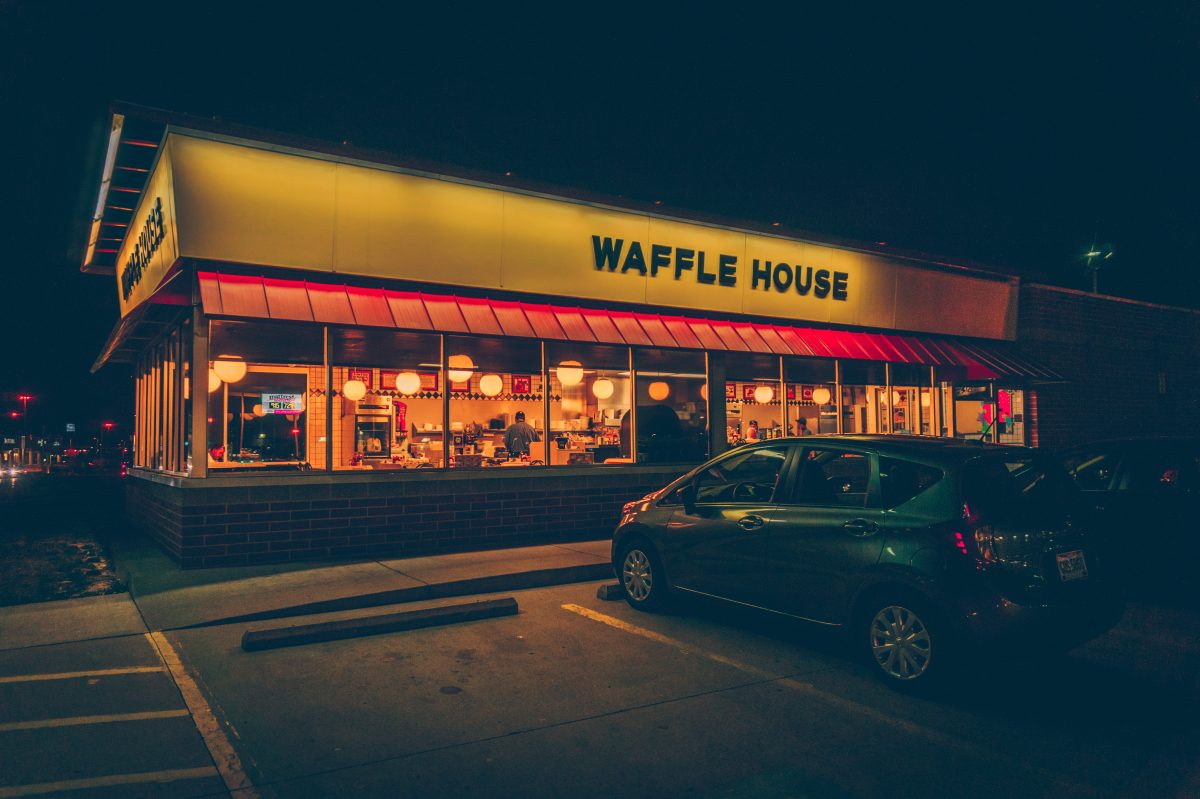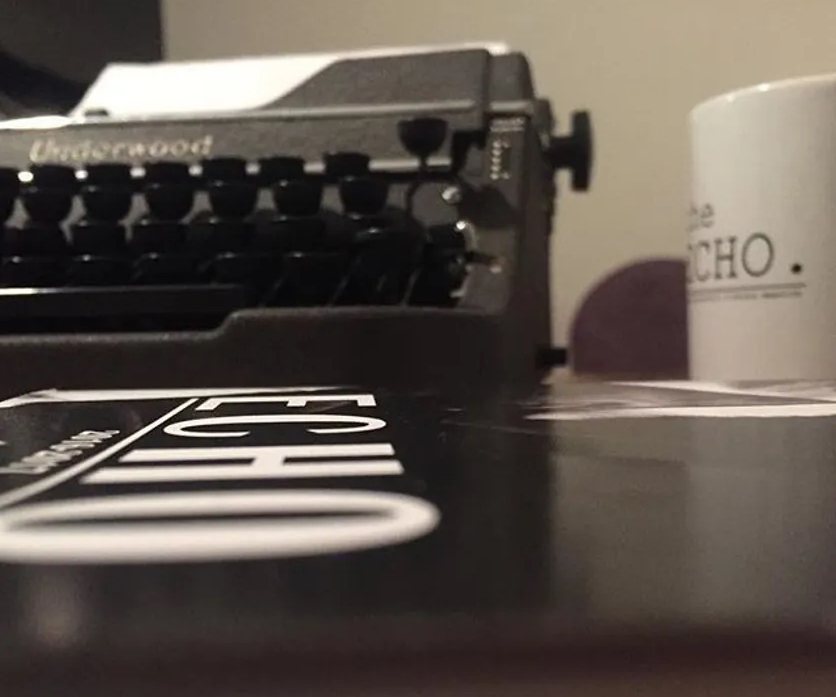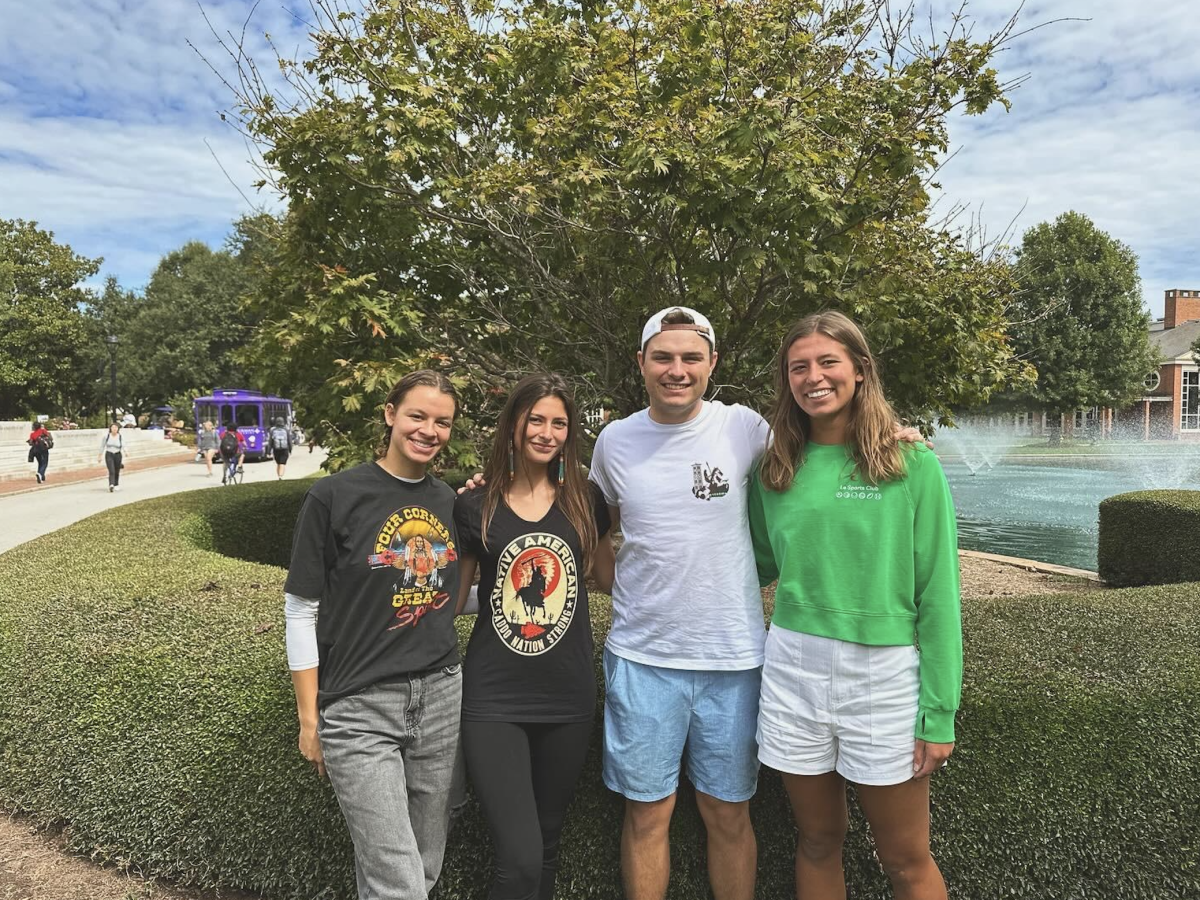“Composting is the ultimate form of recycling,” says Kathleen Abernethy ‘23, the Shi Institute’s Compost and Recycling Fellow. Through her work at the Shi Institute, Abernethy is an essential actor in Furman’s wider composting program—a program that composts on average 103.7 tons of food waste a semester.
To help you visualize that number, imagine 45 rhinoceros made of compost. Abernethy has been the Compost and Recycling Fellow since her sophomore year when she received an email about the Shi Institute’s many fellowship opportunities. Since beginning her fellowship, she says she has become more interested in composting and, thus, more mindful of her waste streams. “I’m more aware of what I’m consuming… and where that product will go once I’m done with it,” she reflects. This mindfulness is one of the beautifully unexpected outcomes of becoming a composter. Taking control of your waste streams prompts you to envision future iterations of the products you consume, potentially altering your decision-making processes.
So, if we are going to take control of our waste’s destiny, how do we compost? To begin, you need a compost bin. Some students bring their own bins, while others sign up to borrow a compost bin from the Shi Institute for the year. This program is run by Furman’s Eco Reps, a volunteer group of Furman students who are passionate about empowering their fellow peers to make sustainable lifestyle choices. Once you sign up for a bin, an Eco Rep will contact you about delivering the bin and you are ready to begin composting! We recommend that you also purchase compostable liners to help keep the bucket clean throughout the year. Once you get your bin, you can start composting any organic material you would otherwise throw in the trash. The Shi Institute created the graphic below to help students understand what they can compost. You can take out your compost bin about every other week to the collection bins which are located by the regular dumpsters near Blackwell in South Housing, Gambrell in Clark Murphy, and Apartments B and J in North Village.
This brings us back to Abernethy’s role in the Furman compost system. Abernethy puts out these collection bins every Friday, so students can easily dispose of their compost. On Mondays, Abernethy gathers the bins and delivers the compostable waste to the Furman Farm where Furman farmhands process the waste before being used as fertilizer to grow new crops. Because Abernethy sees so much of our waste, I asked her what she has learned about Furman through what they compost. “I think 2020 to 2021 held a lot of compostable takeout containers from the dining hall,” she said with a laugh. Anyone who was around campus during the pandemic would agree that these containers were everywhere, so it is nice to know that most of the community realized they could be composted. Abernethy has also noticed a lot of plastic bottles in the compost bins, notably next to recycling bins and clearly labeled. When this happens, Abernethy puts on her gloves and fishes them out – would you like microplastics hosting harmful BPAs, PET, and LDPE fueling the next roasted vegetable dish in the dining hall?
The contrast between the ability to compost compostable-takeout containers and the inability to distinguish between the compost and recycling bins shows us how much more work we need to do as a community to manage our waste streams accurately. We can challenge our community to be more mindful consumers by encouraging our friends to compost with us while empowering them with the knowledge to compost well. If we take up this challenge, we will take ownership of our waste in a way that is foundational to building a sustainable future.



































